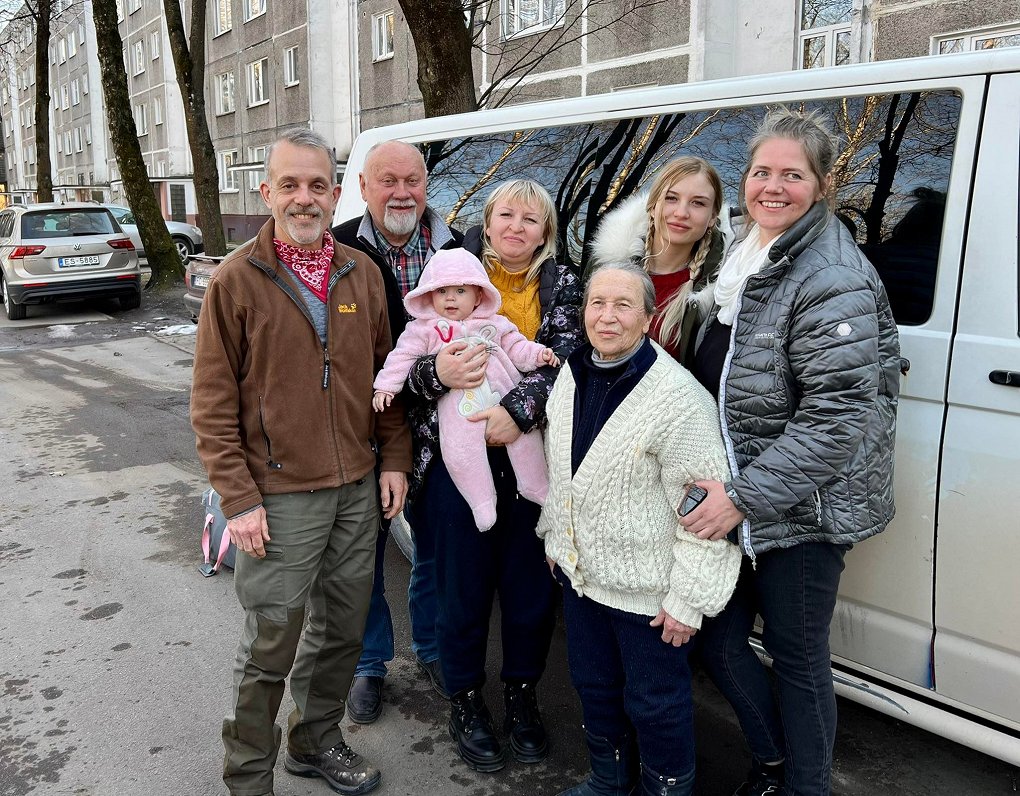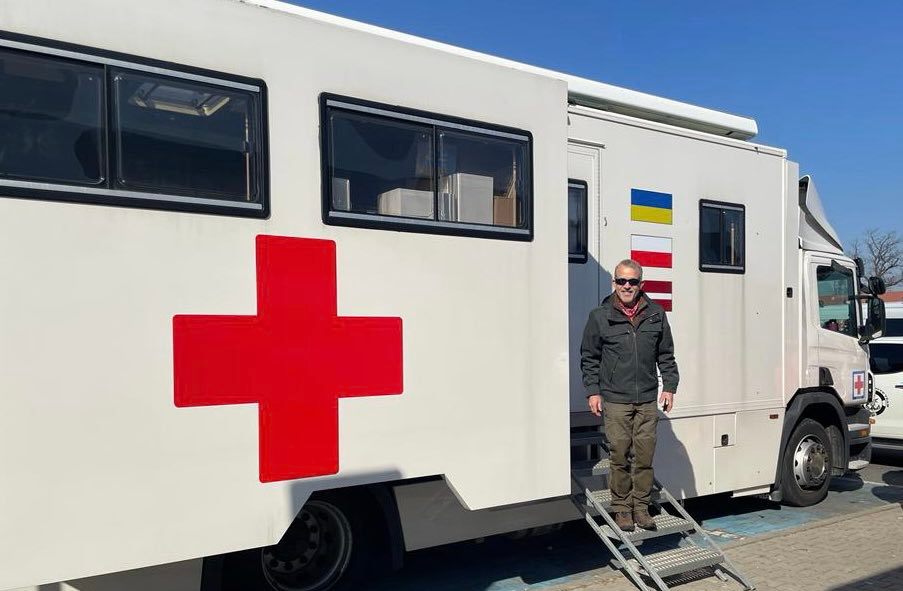Thirty years earlier as a Peace Corps Volunteer in Estonia, then newly independent after 50 years of Soviet occupation, I had a radio show. I thought then that American music was exactly what Estonians needed to hear, and I spent hours planning the music for each show. Now living in Latvia, I volunteer with Ronald McDonald House Charities Latvia, with whom I would deliver a mobile medical truck to Ukraine to act as a mobile clinic treating wounded and infirm Ukrainians. We’d also need a chase car for the return journey, in which we’d bring Ukrainian refugees to Latvia.
The old minivan I’d rented for the journey had a CD player. The trip from Ukraine to Latvia would take fifteen hours, and I don’t speak Ukrainian and only a smattering of Russian, much of it rude. To replace a common language, I scoured my dusty CD collection, and prepared a playlist of American music for them.
I drove south across Latvia, Lithuania and Poland. The Polish border town of Przemysl seemed under martial law: blue lights flashing at every intersection, with police escorts for busloads of Ukrainians lending them the air of visiting dignitaries.
My Latvian colleagues and I entered Ukraine, delivered the truck, and returned late that night to the refugee center in Karczowa, Poland to collect a four-generation family from Kharkiv. Through my Latvian colleagues, I learned that the family had left Kharkiv the day after the invasion. They had traveled slowly west, staying with friends, in basements, outdoors. After three weeks they reached the Polish border on foot, where they waited outside in the cold for a day, before entry.
Near midnight, we set off. I introduced myself in bad Russian with my biggest American smile. I selected Johnny Cash’s “Solitary Man” to start our journey. I thought his spare, acoustic version of Tom Petty’s “I Won’t Back Down,” might please my guests. Yet within minutes they were asleep. As Johnny sang about standing his ground even at the gates of hell, I thought about this determined family sleeping rough, walking exposed to bombs, and how despite this, they were serene, unshaken. The song could’ve been written about them.
In the night, with our passengers quiet, I played Bruce Springsteen’s, “The Ghost of Tom Joad.” In “Across the Border,” he sings wistfully about leaving his home and country. As it played, I recalled what my guests had told us: their Kharkiv home had been wiped out by a Russian missile strike. Their neighbors’ home was obliterated in the same blast – with their neighbors still inside it. They said this in a matter-of-fact tone that belied the horror of it all.
I thought about why I felt these musicians had something of value to say. I mean, I doubt Johnny Cash actually "shot a man in Reno, just to watch him die". I guess The Boss didn’t really have a wife and kids in Baltimore, Jack. But they were in my own life’s playlist, which connected me to home. It was something about that connection – to others, to home – that I thought might resonate.
In the morning, I played Frank Sinatra, confident his music would strike a chord. His “(Theme from) New York, New York,” began. From the opening bars, this anthem to chest-thumping ambition seemed so utterly tone deaf that I skipped to the next song. No one noticed that, or the Dave Brubeck, Etta James or Count Basie that followed.
In the afternoon, we arrived in Rīga. We settled our passengers in their new apartments, accepted teary thanks, hugged our goodbyes and went home to sleep.

Thirty years ago, I was disappointed the Estonians didn’t give a damn for my American music. They listened to my radio show because it broke up the post-Soviet grey monotony of their days, and that was good enough.
Thirty years later, our Ukrainians also paid no attention to my playlist. It seemed, like the Estonians, they had better things to think about. I realize now that I was trying to use music both times to forge a common bond with folks different to me. I had tried to seed the clouds in the minivan with this playlist, hoping for a connection to blossom overnight. In the end, all we shared was the ride. It was quite a ride though, and that was good enough.
The medical truck continues operations in Ukraine, currently in Bucha, Irpin and Gostomel. It operates under the authority of Ukraine’s Ministry of Health, and provides medical treatment and prescription medications. It has treated nearly 3,000 Ukrainians to date. It is supported entirely from donations.
You can read more about this effort at: https://rmhc-latvia.lv/mobilais-veselibas-aprupes-centrs-turpina-nodrosinat-primaro-medicinisko-aprupi-ukrainas-iedzivotajiem/ and to make a donation you can visit: https://rmhc-latvia.lv/ka-atbalstit/





























